Terpstra, an individualist and a team player
Dutchman a Tour of Flanders favourite but not an outright leader
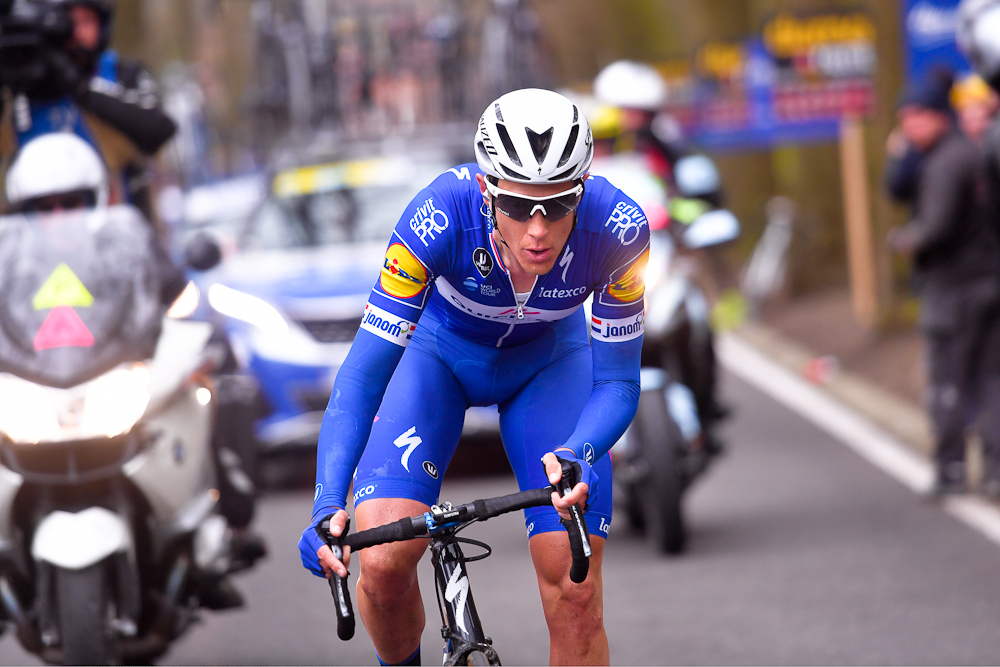
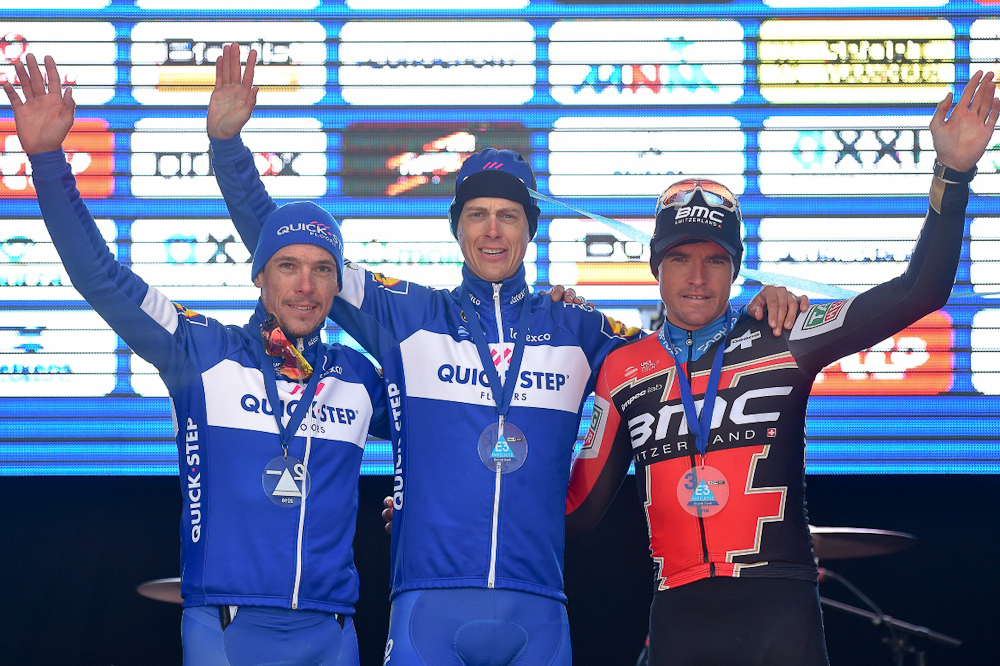
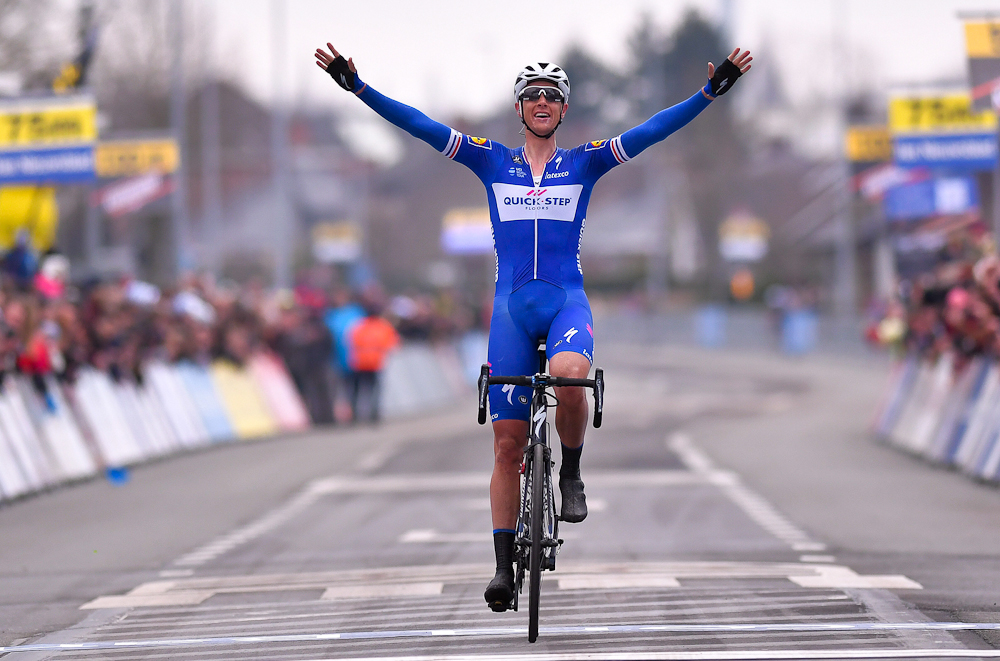
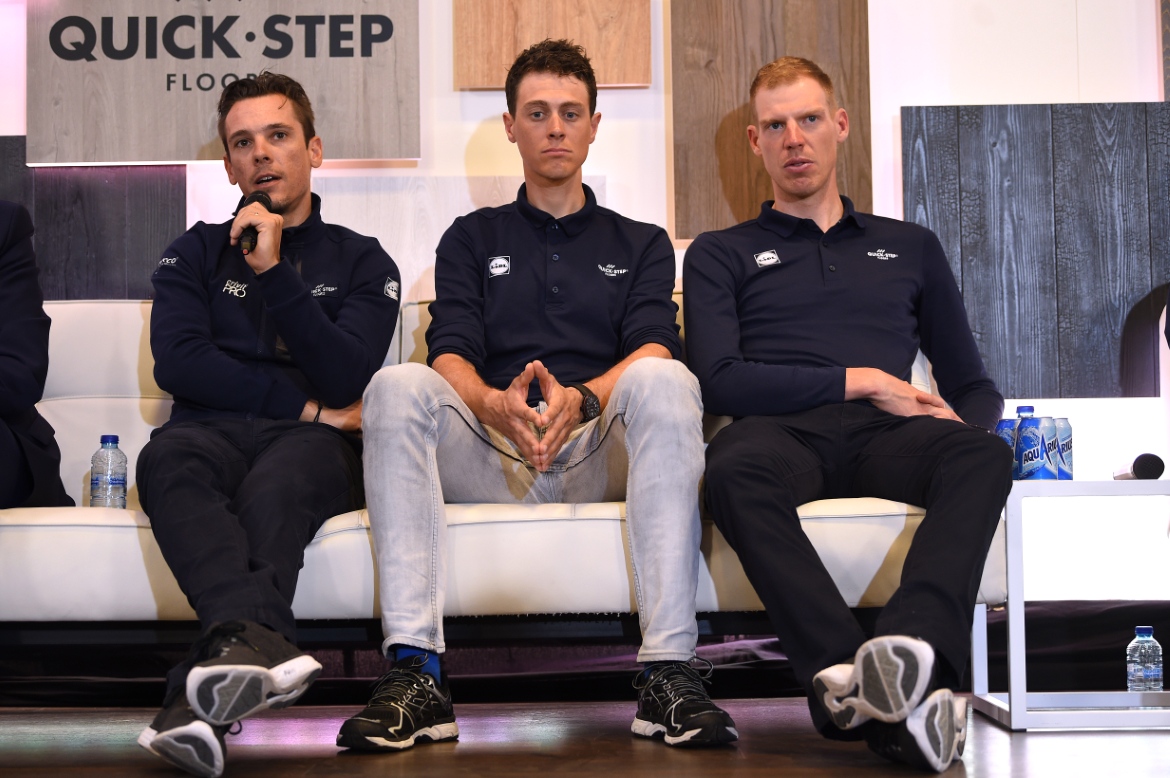
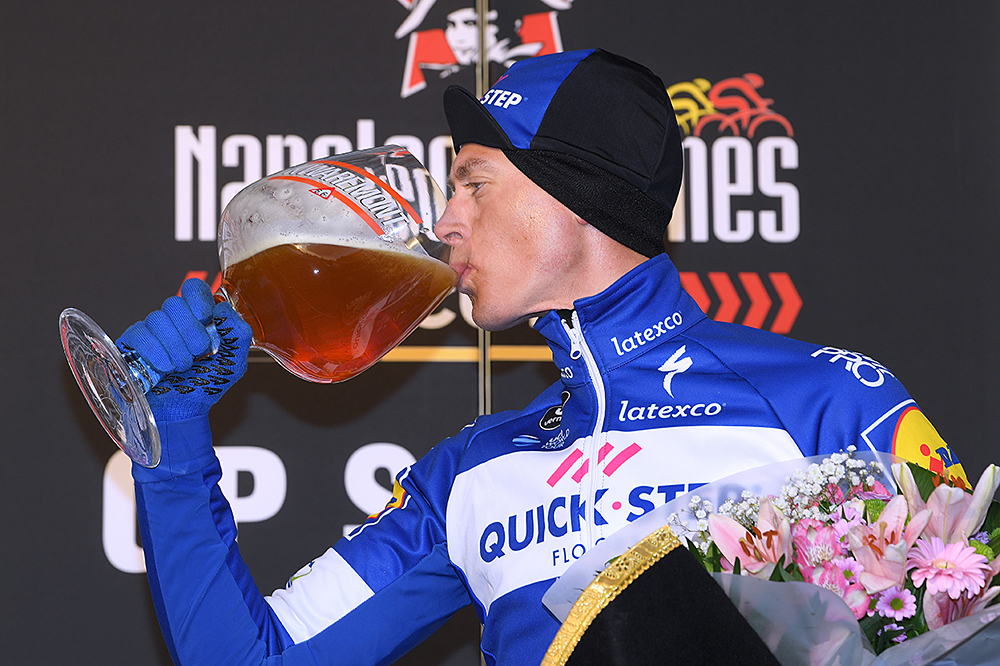
"Who will be the new sheriff in the Texas of Flanders?" So read the poster for last week’s E3 Harelbeke, which featured a Tom Boonen lookalike in Western garb to mark the first edition of the race since Tommeke hung up his wheels a year ago.
By the end of the afternoon, it was Boonen's old teammate Niki Terpstra who was standing atop the podium in Harelbeke, after going on the attack with 70 kilometres to go and riding alone for the final 20 kilometres. His face fixed a seemingly permanent half grin, Terpstra has always carried himself with a certain swagger, yet he has always been curiously reticent to lay any claim to the badge of outright leadership at Quick-Step Floors.
As the Tour of Flanders approaches, Terpstra is one of the top contenders for victory, but even now, he is quietly insistent that he will set out from Antwerp as one of four Quick-Step riders with equal status, alongside defending champion Philippe Gilbert, Dwars door Vlaanderen winner Yves Lampaert and Zdenek Stybar.
Terpstra's public emphasis on the collective seems difficult to reconcile with his reputation as an individualist, a tag that, rightly or wrongly, took hold in the popular imagination during the early part of his tenure at Quick-Step. During that time, he seemed rather more adept at combining team duties with personal glory than teammates like the more obviously selfless Sylvain Chavanel.
The characterisation surfaced again in the finale of E3 Harelbeke last week, when Terpstra – and teammate and breakaway companion Yves Lampaert – appeared in no mood to wait for their fellow Quick-Step Floors man Philippe Gilbert, who was trying to bridge across after accelerating on the Karnemelkbeekstraat. Terpstra bristles at the suggestion that he is given to pre-empting attacks or ignoring team orders.
"Whoever says that, doesn't know anything about cycling," Terpstra said earlier this week. "Feel free to ask my teammates. Or ex-teammates. I don't care whether it's a climber, sprinter or Classics rider. It's called give and take."
Standing beneath the canopy of the Quick-Step Floors bus in a rain-soaked Roselare ahead of Wednesday’s Dwars door Vlaanderern, team manager Patrick Lefevere agreed, delivering a firm character reference for a rider who is now in his eighth season on the squad.
Get The Leadout Newsletter
The latest race content, interviews, features, reviews and expert buying guides, direct to your inbox!
"I think that reputation is completely wrong, because he's a team player," Lefevere told Cyclingnews. "He's an individualist, too, but in their own mind, every big rider is an individualist. He's from North Holland, and they're a little bit different than we are, but we see in the big Tours, he's the guy who keeps the team together, who challenges everybody to do better. So I think his reputation is completely wrong."
The Dutchman's natural inclination towards plain-speaking hardly helped how he is perceived. Take his response to losing out to Tom Dumoulin in the voting for Dutch rider of the year in 2014, for instance, when he failed to deliver the kind of platitudes expected of a runner-up. "I thought I'd shown enough this year," complained Terpstra, winner of Paris-Roubaix that season. Once the lights went up at ceremony's end, Algemeen Dagblad reported, an indignant Terpstra "won the sprint for the cloakroom" and promptly left.
When Terpstra and Peter Sagan clashed on last year's Gent-Wevelgem and allowed Greg Van Avermaet to ghost away on the run-in, the world champion, a more careful curator of his image, seemed to be spared the brunt of the criticism from press and public alike, even though it had clearly taken two to tango.
Even Boonen has joked that, prior to Terpstra's arrival on the team in 2011, he found the Dutchman to be among the most irritating riders in the peloton. "When he was at Milram, he was always on my wheel. Even when I stopped for a piss, he was there," Boonen told L'Équipe back in 2014. "But now that he's with us, I've got to know and like him."
A native of Beverwijk, north of Amsterdam, the 33-year-old Terpstra is not much given to sugar-coating his words, even when guiding the younger riders on the team. "I try to help them, but it sometimes comes across as hard because I say it the Dutch way – directly – and they are sometimes startled," he told Het Nieuwsblad this week.
He is equally to the point when it comes to receiving too superfluous information over his radio earpiece in a race. "I don’t hesitate to respond: 'That's all well and good, but we're in a race now. Just give us information we can do something with.'"
Leadership
When Terpstra soloed clear to win Paris-Roubaix in 2014, there was an expectation that the supposed arch individualist would seek an upgrade in his status on Quick-Step's Classics unit, or outright leadership of a team elsewhere. Yet while his compensation may have been adjusted accordingly to that of a Monument winner, he was content to remain as one option among many in Quick-Step's galaxy of Classics stars.
"I think that means he is intelligent," Lefevere said. "I think he's not explosive enough to do the same thing every year. He’s not a Sagan or something. He can win like he demonstrated last Friday in Harelbeke. That was a team victory, and he also did a big number in the way he won. But in the end, if you see how the team works, it's 'today it's me, tomorrow it's you.' That's the mindset of the whole team."
Terpstra has won Paris-Roubaix, E3 Harelbeke and Dwars door Vlaanderen (twice) in Quick-Step Floors colours, and twice placed on the podium at the Tour of Flanders, in 2015 and 2017. In that time, however, he has more often played a key supporting part in the Classics successes of Boonen and, more recently, Gilbert and Lampaert. For Lefevere, few riders better understand their place in the firmament at Quick-Step than Terpstra.
"If you play the game, our game, you know that one day you win, another day a teammate will win. In the end, the goal is that we are winning. Who wins is not important," Lefevere said.
"The guys who didn't understand didn't stay very long. I don't want to name names, but one time there was a rider, he was one of our guys in the breakaway but Johan Museeuw won and he was not happy. I saw his face and I said, 'Today you signed your death on the team.' And I fired him."
There seems likely to be no such risk for Terpstra, even if his contract – as in 2017 – expires at the end of the season. As perhaps the strongest rider on what is certainly the strongest team at this Tour of Flanders, Terpstra has been identified by Boonen himself as the favourite for victory in Oudenaarde on Sunday afternoon. It remains to be seen how Terpstra will carry the burden.
"I think with Niki you never know," Lefevere said. "He can be a big favourite and be disappointing, and then the next week he's back. He's one of the four leaders, he's not a step higher than the others."
Perhaps Terpstra's greatest strength is that he knows it.
Click here to subscribe to the Cyclingnews podcast.

Barry Ryan was Head of Features at Cyclingnews. He has covered professional cycling since 2010, reporting from the Tour de France, Giro d’Italia and events from Argentina to Japan. His writing has appeared in The Independent, Procycling and Cycling Plus. He is the author of The Ascent: Sean Kelly, Stephen Roche and the Rise of Irish Cycling’s Golden Generation, published by Gill Books.